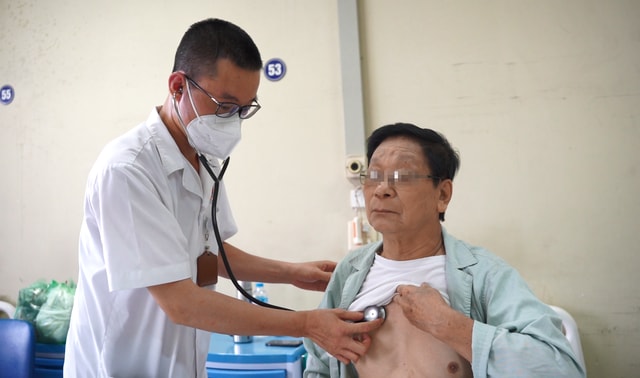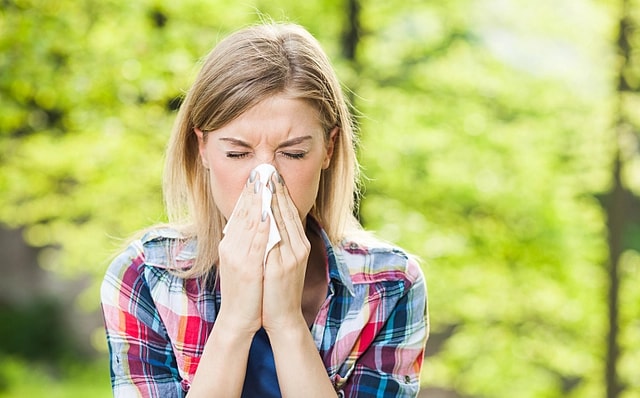What to do in hot weather to avoid respiratory diseases?
Hot weather with low humidity easily causes the respiratory tract mucosa to dry and become irritated, creating favorable conditions for bacteria and viruses to invade and cause disease.
The weather is starting to enter summer with hot, humid days, which are also favorable conditions for bacteria and viruses to develop and cause disease. So what should people do to limit the risk of respiratory diseases?

Prevent respiratory diseases in summer
Respiratory diseases are common in winter, but it is also easy to get respiratory diseases in summer. Therefore, people still need to take some of the following measures to prevent respiratory diseases.
- Ensure a nutritious diet and drink enough water. Everyone needs to increase green vegetables, fruits and foods rich in vitamins and minerals. Each person needs to drink 2-3 liters/day, but should divide it into many times. In the summer, you should not drink ice water or cold water, soft drinks, carbonated drinks, but should choose filtered water, vegetable and fruit juices...
- Exercise regularly, preferably early in the morning or late in the afternoon. Avoid going out during peak heat from 10am to 2pm every day. If you need to go out, wear protective clothing and sun protection.
- Limit cold foods.
- Limit heat shock by not bathing immediately after coming in from hot weather or entering an air-conditioned room where the temperature is much lower than outside.
- If using air conditioning, it is best to set the temperature at about 26-28 degrees Celsius, do not let the fan blow directly on the person. People should not stay in the air-conditioned room for too long because it can dry out the nasal mucosa. Because air conditioning causes low humidity in the air, people can use humidifiers such as humidifiers, mist sprayers, etc. to help limit the dryness of the respiratory tract.
- Get a daily flu vaccine to prevent some common strains of flu virus.

Why is it easy to get respiratory diseases in the summer?
In summer, there are risk factors that increase respiratory diseases such as:
Hot and humid weather creates favorable conditions for bacteria and viruses to grow.
The demand for air conditioning increases in the summer, with many people using air conditioning at temperatures that are much different from the outside. Using air conditioning for a long time, at low temperatures, can also cause the nasal mucosa to dry out and cause respiratory infections. The body's frequent sudden temperature changes (or going in and out of rooms with air conditioning on) can reduce the resistance of the airways and cilia, increasing the risk of respiratory infections.
When it's sunny, people often have the habit of eating cold food, drinking cold drinks to cool down like cold fruit, ice water, ice cream... and the habit of bathing right after coming home from the sun even when their bodies are sweating.
Hot weather is when the body loses a lot of sweat, which also affects diet and daily activities. This is also one of the reasons why the body's immune system is weak and susceptible to diseases, including respiratory diseases.
Respiratory diseases commonly contracted in the summer
Hot weather can easily cause us to get respiratory diseases such as:
Pneumonia
Bronchitis
Rhinopharyngitis
Sinusitis
Tonsillitis
People with chronic lung disease are at risk of acute attacks such as asthma, chronic obstructive pulmonary disease, bronchiectasis...
When patients have respiratory diseases with unusual symptoms such as high fever, prolonged cough, chest tightness, difficulty breathing, etc., they should immediately go to a medical facility for examination. If they have a respiratory infection, they need to be treated early and properly to avoid affecting the lungs and bronchi. Patients should absolutely not self-treat at home or use non-prescription drugs to avoid dangerous health complications./.




